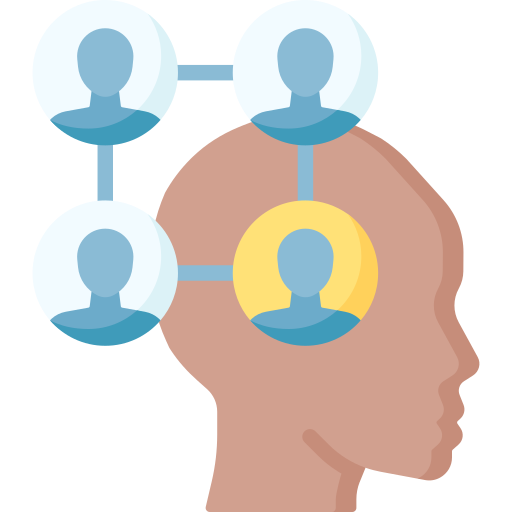Social Skills in the Workplace

Every day, we use our social skills when we talk with family, message friends, or even chat with strangers online.
But these skills are not just for personal life—they’re important at work too. Having strong social skills helps you talk well with co-workers, understand how teams work, and fit into your workplace’s culture, even if you’re working from home. Let’s explore what social skills are and how you can get better at them.

What are social skills?
Social skills, also called interpersonal skills, are the ways we communicate and interact with others. They cover things like talking (both in-person and online), understanding body language, and even writing and visual communication.

Why are social skills important?
At work, social skills are super important. No matter what job you do, they help you build good relationships with teammates, bosses, and clients. Good social skills make it easier to work together, solve problems, and make the workplace a happy place to co-exist with others.
How can I improve my social skills?
Improving your social skills takes practice. Here are some tips:
- 1. Remember names: Say someone's name when you meet them—it helps you remember. You can also try tricks like associating their name with something you know.
- 2. Get to know people: Small talk can help you get to know your co-workers better. You can ask about their weekend plans or suggest grabbing lunch together.
- 3. Understand emotions: Pay attention to how people feel and how you feel too. This helps you understand others better.
- 4. Give praise and encouragement: Be kind and supportive. When someone does something great, tell them!
- 5. Listen actively: When someone talks, really listen. Show you're paying attention by nodding and asking questions.
- 6. Ask open-ended questions: Instead of questions with yes or no answers, ask ones that make people talk more.
- 7. Show interest: Be curious about your co-workers' lives. Ask about their hobbies or where they grew up.
- 8. Watch and learn: Pay attention to how others act and react. It can teach you a lot about social skills.
- 9. Socialize in comfortable places: It's easier to chat in places where everyone feels relaxed, like the break room.
- 10. Arrive early: If you're shy, getting to events early can help you talk to people before it gets crowded.
- 11. Prepare: Have some conversation starters ready for events. But don't sound rehearsed—keep it natural.
- 12. Know the rules: Every workplace has its own customs. Pay attention to what's expected.
- 13. Include others: Don't hog the conversation. Make sure everyone gets a chance to talk.
- 14. Manage your energy: Socializing can be tiring. Save it for times when you feel energetic.
- 15. Keep it light: Stick to positive topics.
- 16. Be positive: Spread good vibes. Being positive attracts people to you.
- 17. Ask for feedback: Get honest opinions from others to see how you're doing.
- 18. Set goals: Decide what you want to improve and work on it, like not interrupting others.
- 19. Practice: The more you talk to people, the better you'll get.
FAQs
Here are some additional answers to questions you might have about social skills at work.
What are key social skills at work?
Effective communication, teamwork, leadership, empathy, and active listening.
How can I improve my social skills?
Practice chatting with a friend, family member, or colleague, and ask for their feedback on how you did. For example, ask for feedback on your tone of voice, body language, and the words you used.
Are social skills more important than technical skills?
Not necessarily, both sets of skills are important for different reasons. (You can learn more about technical skills in our article “Why Add Technical Skills to your Resume”).
Can poor social skills affect my career?
Yes, it can make it harder to get along with others in your workplace, and this can make it more difficult to advance your career.
What are some exercises for social skills?
Role-playing with a friend, family member or colleague, practicing mindfulness and self-awareness, and setting goals are all good exercises.
What are examples of social skills?
Holding a conversation (whether that be about a job at work, feelings/emotions, or simply about the weather), understanding emotions, having empathy for others and actively listening to what they are saying, and resolving conflicts peacefully.
Overall, being able to have a good set of social skills both inside, (and outside), of the workplace is an important part of healthy relationships with others.

Here are additional resources to help you nail down those social skills!
Kootenay Employment Services expands on the topic of social and communication skills in our article “Communication Skills and Your Resume”.
The Balance is an agency that provides support and guidance around finances. Their article outlines their top 6 social skills for workplace success.
Kara Ronin is a career and leadership coach and in her video she explains different ways to work on important social skills for the workplace.
Indeed is a job-seekers’ website with job postings from across the world. Their article provides additional detail on social skills with examples.